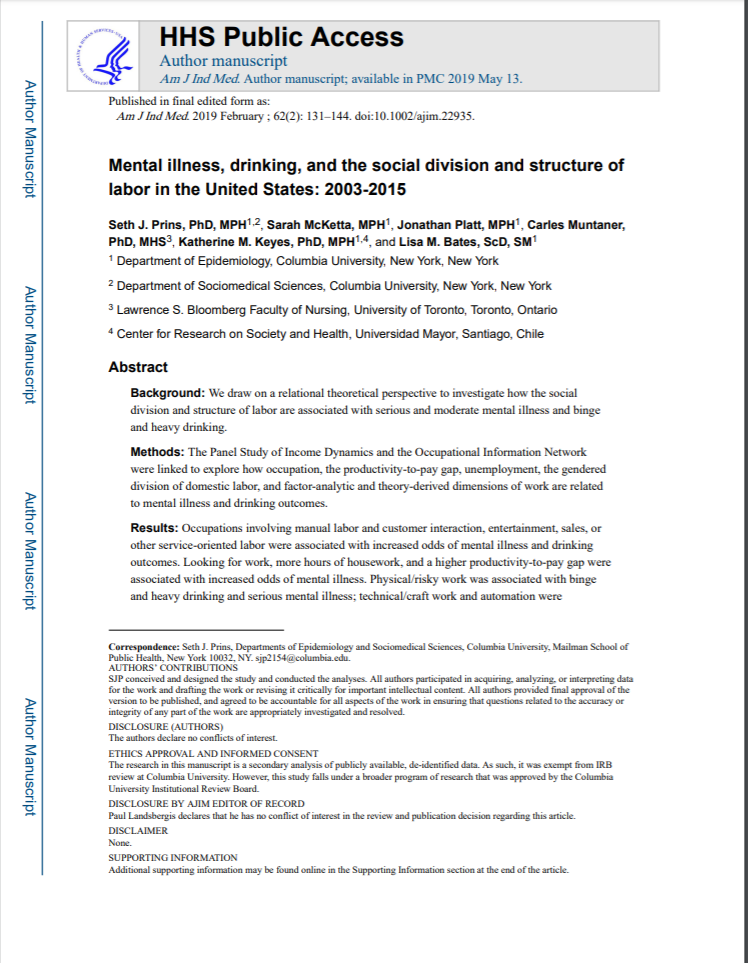Mental illness, drinking, and the social division and structure of labor in the United States: 2003-2015

Fecha
2019Autor
Keyes, Katherine M. [Univ Mayor, Ctr Res Soc & Hlth, Santiago, Chile]
Prins, Seth J.
McKetta, Sarah
Platt, Jonathan
Muntaner, Carles
Bates, Lisa M.
Ubicación geográfica
Notas
HERRAMIENTAS
Acceda a títulos restringidos
¿Cómo descargar?Resumen
Background We draw on a relational theoretical perspective to investigate how the social division and structure of labor are associated with serious and moderate mental illness and binge and heavy drinking. Methods The Panel Study of Income Dynamics and the Occupational Information Network were linked to explore how occupation, the productivity-to-pay gap, unemployment, the gendered division of domestic labor, and factor-analytic and theory-derived dimensions of work are related to mental illness and drinking outcomes. Results Occupations involving manual labor and customer interaction, entertainment, sales, or other service-oriented labor were associated with increased odds of mental illness and drinking outcomes. Looking for work, more hours of housework, and a higher productivity-to-pay gap were associated with increased odds of mental illness. Physical/risky work was associated with binge and heavy drinking and serious mental illness; technical/craft work and automation were associated with binge drinking. Work characterized by higher authority, autonomy, and expertise was associated with lower odds of mental illness and drinking outcomes. Conclusions Situating work-related risk factors within their material context can help us better understand them as determinants of mental illness and identify appropriate targets for social change.
Coleccion/es a la/s que pertenece:
Si usted es autor(a) de este documento y NO desea que su publicación tenga acceso público en este repositorio, por favor complete el formulario aquí.